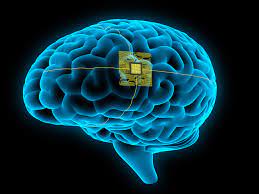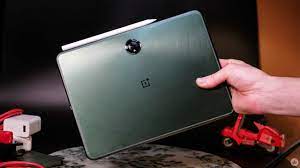Neuralink Competitor Precision Neuroscience Acquires Factory to Develop Brain Implants
Introduction
Precision Neuroscience, a prominent competitor of Elon Musk’s Neuralink, has made a significant move by acquiring a factory dedicated to the development of cutting-edge brain implants. This strategic move positions Precision Neuroscience as a strong contender in the emerging field of brain-computer interfaces (BCIs). In this article, we will explore the implications of this acquisition and delve into the potential impact it may have on the neurotechnology industry.
Understanding Precision Neuroscience’s Vision
Precision Neuroscience has long been committed to advancing the field of neurotechnology with a focus on developing innovative brain implants. Their vision is to create devices that can seamlessly integrate with the human brain, enabling individuals to enhance their cognitive abilities and potentially address neurological disorders. This recent acquisition of a dedicated factory signifies Precision Neuroscience’s commitment to scaling up their operations and accelerating the development of their brain implants.
The Significance of the Factory Acquisition
By acquiring a factory, Precision Neuroscience gains full control over the production process of their brain implants. This vertical integration allows them to streamline manufacturing, ensure quality control, and increase production capacity. With their own factory, Precision Neuroscience can now work towards bringing their brain implants to market more efficiently and with greater control over the entire supply chain.
Advancements in Brain Implant Technology
Brain implants, also known as neural implants or BCIs, have witnessed significant advancements in recent years. These devices are designed to interface with the brain, allowing for bidirectional communication between the brain and external technologies. Brain implants hold immense potential in various fields, including healthcare, gaming, and communication.
Potential Applications of Precision Neuroscience’s Brain Implants
Precision Neuroscience’s brain implants have the potential to revolutionize the way we approach neurological disorders and cognitive enhancement. Here are some of the potential applications of their technology:
1. Treatment of Neurological Disorders
Precision Neuroscience’s brain implants may offer new treatment options for individuals with neurological disorders such as Parkinson’s disease, epilepsy, and spinal cord injuries. By stimulating or inhibiting specific areas of the brain, these implants can help alleviate symptoms and improve the quality of life for patients.
2. Cognitive Enhancement
Precision Neuroscience’s brain implants may also have applications in cognitive enhancement. By augmenting certain cognitive functions, such as memory or attention, these implants could help individuals perform at a higher cognitive level and potentially improve learning and problem-solving abilities.
3. Restoring Sensory Functions
For individuals with sensory impairments, Precision Neuroscience’s brain implants could offer hope for restoring lost sensory functions. By bypassing damaged sensory organs and directly stimulating the brain, these implants could potentially restore vision, hearing, or even touch.
The Impact of Precision Neuroscience’s Factory Acquisition
Precision Neuroscience’s acquisition of a factory demonstrates their commitment to bringing their brain implants to market at scale. This move is expected to have several significant impacts on the neurotechnology industry:
1. Increased Production Capacity
With their own factory, Precision Neuroscience can significantly increase their production capacity, allowing them to meet the growing demand for their brain implants. This increased capacity will enable them to reach a larger market and potentially make their technology more accessible to individuals in need.
2. Enhanced Quality Control
Having complete control over the manufacturing process ensures that Precision Neuroscience can maintain the highest quality standards for their brain implants. This level of quality control is crucial for ensuring the safety and effectiveness of the implants, instilling confidence in both patients and healthcare professionals.
3. Accelerated Innovation
With a dedicated factory, Precision Neuroscience can streamline their research and development efforts, leading to accelerated innovation in the field of neurotechnology. This may result in the development of more advanced and sophisticated brain implants, pushing the boundaries of what is currently possible.
Conclusion
Precision Neuroscience’s acquisition of a factory dedicated to the production of brain implants marks a significant milestone in the field of neurotechnology. This strategic move positions them as a formidable competitor to Neuralink and highlights their commitment to advancing the field of brain-computer interfaces. With their increased production capacity, enhanced quality control, and potential for accelerated innovation, Precision Neuroscience is poised to make a lasting impact on the neurotechnology industry. As the field continues to evolve, the future holds great promise for the development of brain implants that can improve the lives of individuals with neurological disorders and pave the way for exciting advancements in cognitive enhancement.



